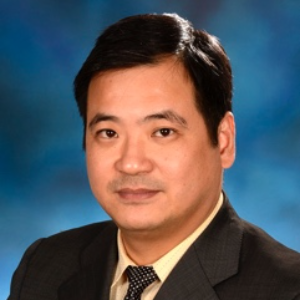Title : Novel stem cell therapy to boost recovery from ischemic brain injury
Abstract:
Ischemic brain injury after Cardiac Arrest (CA) remains challenging with high mortality and disability and causes irreversible neurological dysfunction in over 90% of CA survivors. Current medical treatments do not effectively combat neuronal loss. Neural Stem Cell (NSC) engrafting is an emerging therapeutic strategy with considerable promise that, however, is severely compromised by limited cell functionality after in vivo transplantation. Metabolic Glycoengineering (MGE) employs sugar analogs to introduce functional groups to hNSC surface proteins to enhance cell adhesion, and, consequently, survival rates. This talk evaluates the impact of MGE on human NSC (hNSC) therapy for brain recovery after CA. We developed the novel Ac5ManNTProp analog and optimized the treatment conditions and differentiation ability with hNSCs in vitro. To evaluate the TProp treatment on stem cell therapy and 4-week long-term outcomes after resuscitation, twenty-one Wistar rats were randomly assigned to three groups 3 h after 8 min-CA (n=7): the control group, NSC group, and TProp-NSC group. To evaluate the effects of modulation Wnt signaling on functional outcomes after CA, another twelve adult Wistar rats were randomly assigned into two groups (N=6): Wnt-inhibitor IWR-1 modified NSC and 8min-CA rats Wnt-promotor HLY78 modified NSC. Neurological deficit scores (NDS) were assessed at 24, 48, 72h, and weekly after resuscitation. Open-Field, Elevated Maze, and Tail Suspension tests were performed weekly to monitor behavioral progression, and cell migration was quantified using immunohistochemistry of brain tissues. MGE using the “TProp” monosaccharide analog stimulates the Wnt/β-catenin pathway, improves cell adhesion, and enhances neuronal differentiation in human NSCs in vitro thereby substantially increasing the therapeutic potential of these cells. For the first time, MGE significantly enhances NSC efficacy for treating ischemic brain injury after asphyxia CA in rats. In particular, neurological deficit scores and neurobehavioral tests, which showed improvement with "stand-alone" NSC therapy, achieved even greater efficacy when the therapeutic cells were pretreated with TProp. The TProp-NSC group exhibited significantly stronger neuroprotective functions including enhanced differentiation, synaptic plasticity, and reduced microglia recruitment; furthermore, Wnt pathway agonists and inhibitors demonstrated a pivotal role for Wnt signaling in these processes. MGE as a promising avenue for addressing current limitations associated with NSC transplantation via beneficially influencing neurite development and neural regeneration, offers enhanced therapeutic options to boost brain recovery following global ischemia.
Acknowledgement: This work was partially supported by R01NS125232 and R01NS110387 from the National Institute of Neurological Disorders and Stroke (both to Xiaofeng Jia).
Audience Take Away Notes:
- A review of the exciting frontier of stem cell therapy for acute neurological injuries including stroke, global ischemic injury. The attendee will be able to evaluate the status of human neural stem cell transplantation in the treatment of neurological injury after cardiac arrest. The attendee will analyze the translational value of preclinical studies in the application of stem cell therapies after neurological injury. Attendees will investigate the limitations of translation of these stem cell therapies to clinical practice and will discuss potential solutions to this challenge. The attendee will be able to discover the potential applications and evaluate the status of human stem cell transplantation in the treatment of neurological injury after cardiac arrest. Attendees will learn the basic science involved in stem cell procurement, generation, and differentiation




